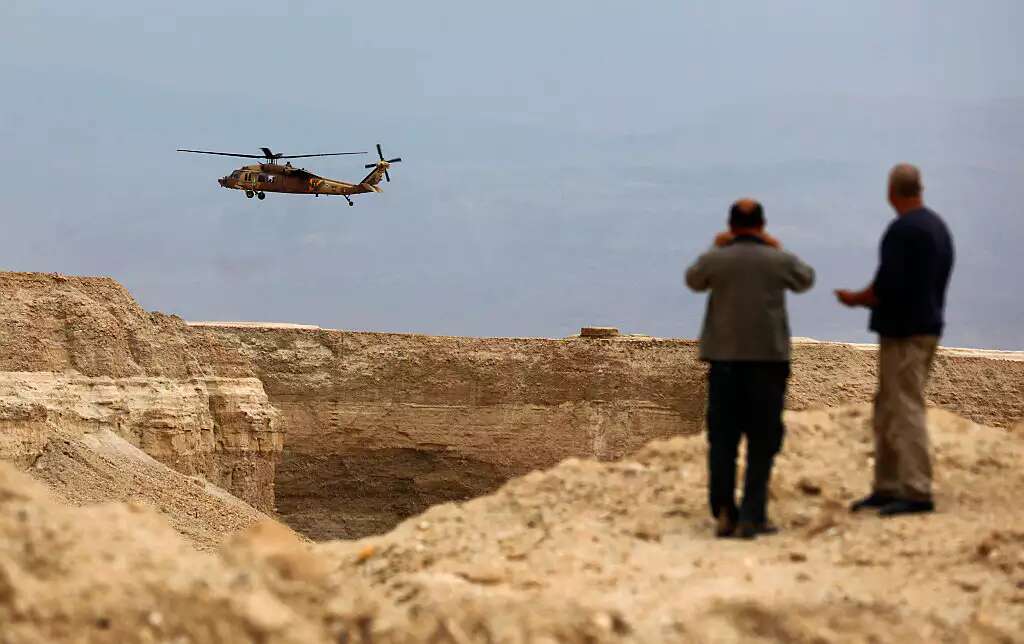Seven years after the Nahal Tzafit flash flood disaster, the Beersheba District Court on Tuesday sentenced Yuval Kahan, director of the Bnei Zion pre-military academy, and its educational director, Aviv Bardichev. Both had been convicted of 10 counts of negligent manslaughter.
They were each sentenced to seven years in prison. In addition, the judge ruled that each defendant must pay 210,000 shekels in compensation to the families of the students who were killed.
Judge Yuval Livdaro, in delivering the verdict, stated: "Ten young people did not return from the trip, and they never will. The factual findings are lengthy. The defendants violated many values, including the most sacred in our legal system: the sanctity of life. This trip was not essential; it was one that had been warned against."
"The defendants, one who decided to disappear and remain silent, and when he heard, chose to ignore it. And another who walked into disaster, taking a group of young people who trusted him, and entered the river despite warnings. Every rational person in Israel knows the words 'Nahal Tzafit disaster.' We must not let the horrors of October 7 dull the scale of this disaster. That day should not serve as a reference point for the magnitude of the tragedy we are dealing with. Consideration must be given to the psychological damage across all circles, to the survivors, and to the damage done to public trust in educational institutions."

The judge noted that the defendants' negligence extended over several hours: "Each had many opportunities to stop, and did not. I took into account the option not to go on the trip at all, and the circumstances of the week leading up to it. I also considered the weight of the defendants' responsibility toward the victims. They were entrusted with the care of young people who believed in them. They betrayed that trust, and that of the victims' parents, by taking unreasonable risks. I recognize this occurred during a desired educational activity and involved a natural disaster, but their negligence was not due to a breach of official protocols."
"It was not proven that the defendants were aware of the risk in the river or the potential for death," the judge said. "Therefore, I convicted them of 10 counts of negligent manslaughter. They did not act with criminal intent. They did not exercise reasonable caution or skill. They took risks."
The court also considered probation reports and sentencing evidence: "The defendants' claims that their negligence was minor and not criminal cannot be accepted. The scope of the warnings, the specific alerts, the option to stop the trip, and the magnitude of the resulting harm indicate the highest level of negligence. Each defendant's degree of fault varied by circumstance. These were young people who delayed their military service to contribute to the country. The families' testimonies left no eye dry. One must assume that the sentence will not satisfy their subjective sense of justice."
Attorneys representing the families, Dana Kaufman, Galit Rothenberg and Roni Rosenfeld of Goldfarb Gross Seligman, criticized the ruling: "In its verdict, the court made a firm statement that the deaths of the nine girls and one boy in Nahal Tzafit were not acts of God but the result of human decisions, the defendants. The families believed that this firm statement would be reflected in an appropriate sentence, but to their deep disappointment and astonishment, they discovered today, after seven years of prolonged emotional agony, that the lives of each of their children were worth less than one year of imprisonment."
They argued that the prosecution must appeal the sentence so justice can be served for the families. "Each of the teenagers who was killed represented a world in its entirety. Punishment for causing their deaths cannot be treated as a 'mass grave' approach."

A trip that ended in disaster
The Nahal Tzafit disaster is considered Israel's deadliest flood-related tragedy. Twenty-five boys and girls, aged 17 to 18, who were candidates for the Bnei Zion academy, set out on a bonding hike in Nahal Tzafit and were caught in a flash flood. Ten were killed.
The group had originally planned to hike in Nahal Tze'elim, but due to flood risk there, the route was changed to Nahal Tamar and Nahal Tzafit. On April 26, 2018, around noon, the students descended into Nahal Tzafit and, about half an hour later, were swept up in a flash flood. Ten students managed to escape; the others were swept away.
After receiving reports that the students were in the flood path, rescue teams were dispatched, including IDF 669 unit fighters, supported by three Yasur helicopters, Black Hawks, and an Apache. The helicopters used thermal imaging to locate students carried off by the water current.
Volunteers from the Arava Rescue Unit, large teams from Magen David Adom, the Israel Police, Yahalom combat engineers tasked with clearing landmines, and firefighters and rescue teams from the national Fire and Rescue Authority were all called in. Five of the teens who were swept away were found alive, three of them suffering from hypothermia. Ten students, Ilan Bar-Shalom, Ella Or, Maayan Barhoum, Yael Sadan, Shani Shamir, Romi Cohen, Agam Levy, Tzur Alfi, Gali Balali, and Adi Raanan, were found dead.




